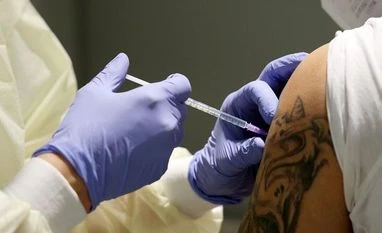Experts have backed heterologous boosting or mixing of vaccines for the booster dose in the wake of BA.2.75, a variant resulting from another major mutation in the Sars-CoV-2 virus that infects people with Covid-19.
Shahid Jameel, senior research fellow at Green Templeton College in Oxford University, told Business Standard that the BA.2.75 has several mutations in the spike protein, two of which are unique to it and are not found in its parent strain, BA.2. These two mutations are G446S and R493Q.
Jameel feels that G446S is one of the most potent sites of escape from antibodies made by current vaccines that still neutralise BA.2. “So it increases chances of infection (even) in people so far protected,” he says.
The other unique mutation (R493Q) enhances virus binding to an enzyme called ACE2 receptor. The enzyme — usually attached to the membrane of cells of the intestines, kidney and other organs — acts as the receptor for the SARS-CoV-2 virus, allowing it to infect the cell. “Mutations often occur in pairs as the virus evolves to optimise receptor binding and antibody evasion,” Jameel explains.
What does it mean?
Jameel says, “The numbers are still low, but the rapid increase suggests a growth advantage. This may fuel fresh re-infections and keep the pandemic going.”
Besides advocating booster shots for the vulnerable, Jameel also says that India should use science to update its booster policy. “The current policy is not making the best use of evidence and available vaccine choices,” he says, adding that recent data from a Christian Medical College (CMC) Vellore study on mixing Covishield and Covaxin shows that Covishield after Covaxin is a far superior combination, but India continues to use Covaxin as the third dose in those who have been jabbed twice.
“Also, global data shows protein vaccines are better after two doses of the AZ (AstraZeneca, marketed as Covishield in India) vaccine than a third dose,” Jameel says.
Samples of BA.2.75 have been found globally, including Canada, Australia, New Zealand and Germany. The Indian government is yet to confirm its presence in the country.
According to a senior scientist from India, who does not wish to be named, the BA.2 Omicron variant is accumulating a lot of sub-lineages, and many of these lineages from India are of BA.2.75 now.
Lipi Thukral, a scientist at the Council of Scientific and Industrial Research-Institute of Genomics and Integrative Biology, says: “This lineage may require urgent attention as most of the mutations are unique, and it has also changed its physicochemical character quite a lot.” Most of the mutations are in the receptor-binding domain, or in domains that bind antibodies or human proteins.
Thukral, however, feels that it is still early to comment on whether mixing vaccines would give a better immune response. “More data is required on this lineage in terms of immune escape,” she says.
Experts say that this is a second-generation mutation.
“All variants drift with time acquiring new mutations. BA.2.75 can be called second generation because it is derived from BA.2. That is true for all BA.2. mutations, and not just this one,” says Gagandeep Kang, microbiologist and professor at CMC Vellore.
What needs to be kept in mind, now that BA.2.75 has been detected, is that if it expands as a percentage of all strains found, it is more capable of spread and immune escape than the current variants, she adds.
Jameel observes that one cannot say if this variant originated in India or it came from elsewhere and found a niche here.
“We need broader genomic surveillance and availability of data in public space to better understand the epidemiology and spread. One needs to continue wearing masks in closed and crowded spaces; improve ventilation and complete vaccination schedules. Also, boosters should also be taken by people with vulnerabilities,” he cautions.
India vaccinates 90% of its adults
Union Health Minister Mansukh Mandaviya announced on Monday that India has achieved complete vaccination of 90 per cent of its adult population. The country has administered 1.97 billion doses of Covid-19 vaccines since the drive began in January 2021. At present, 40,673 sites are vaccinating Indian citizens, and more than 39,000 sites are government-run and administering free vaccines. India has fared well in terms of vaccination and is ahead of the US, where 67 per cent of the population has been fully vaccinated.
Unlock 30+ premium stories daily hand-picked by our editors, across devices on browser and app.
Pick your 5 favourite companies, get a daily email with all news updates on them.
Full access to our intuitive epaper - clip, save, share articles from any device; newspaper archives from 2006.
Preferential invites to Business Standard events.
Curated newsletters on markets, personal finance, policy & politics, start-ups, technology, and more.
)